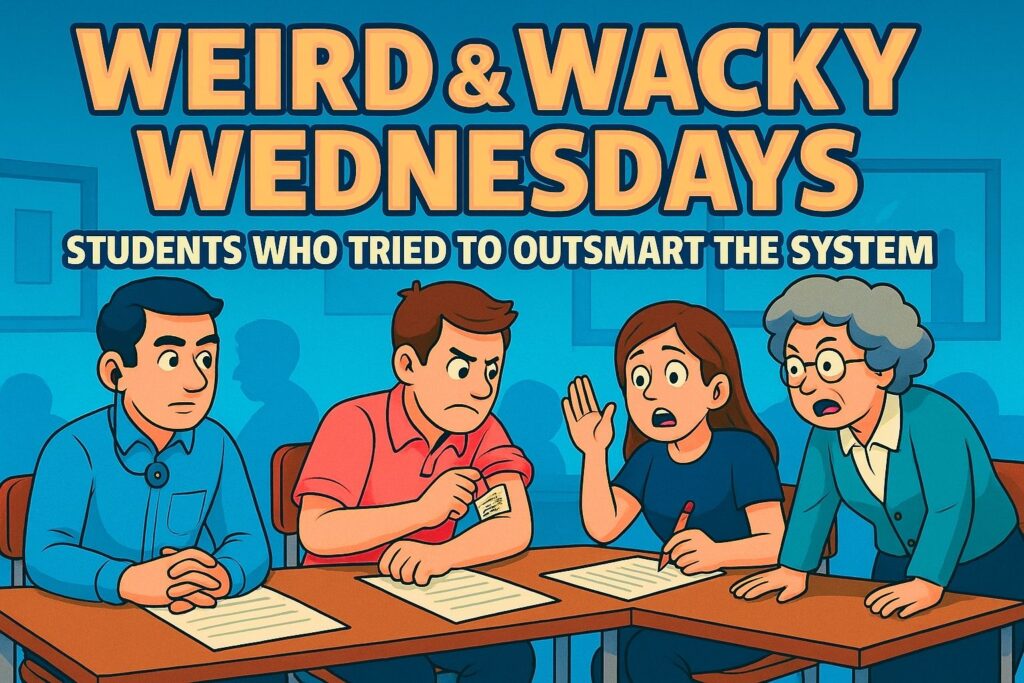This week on Weird and Wacky Wednesdays: Students Who Tried to Outsmart the System
Two weeks into the school year, it’s worthwhile to think about ethics and schools and legal responsibility. This week on Weird and Wacky Wednesdays, we head back to school for legal stories of students whose creative attempts to cheat turned into headline-making lessons.
The Button-Cam AI Caper in Turkey
In 2024, a Turkish university entrance exam turned into a scene from a spy thriller or perhaps the opening scene of the 80s comedy, Spies Like Us. One student arrived wearing what looked like an ordinary shirt and shoes but was secretly carrying a miniature tech lab. He had a camera hidden in a shirt button that captured exam questions and sent them to a router tucked in the sole of a shoe. From there the questions were transmitted to an AI system, which calculated the answers and sent them back to the student through an earpiece.
The plot was clever, until exam officials noticed suspicious behaviour and called in police. The student was arrested on the spot. Clever, for sure, but not clever enough.
Lucknow Law Students and the Chit Parade
A group of aspiring lawyers at Lucknow University in India demonstrated a different kind of ingenuity. During their law exams, thirty-four students were caught hiding tiny handwritten notes in every imaginable location. Some stuffed chits inside socks, others stapled them into shirt sleeves, and a few scribbled cheat codes on their palms or between their fingers. When the ruse was discovered, the university cancelled the exams for all involved.
Future lawyers should probably know better than to cheat because there is always a paper trail. One would imagine that the effort of making the notes exceeded the effort necessary to actually learn the material.
Harvard’s Congressional Copycats
Now a throwback to 2012, when Harvard’s prestigious halls hosted one of the largest academic scandals in the school’s history. In the course Government 1310: Introduction to Congress, a teaching fellow noticed that many take-home exam answers contained strikingly similar structures and even identical phrasing and obscure examples. Investigators flagged around 125 students, nearly half the class, for possible cheating. The scandal rocked the university, triggering debates about collaboration, academic pressure, and the fine line between study group and copy and paste.
One should be rightly concerned that so many people in a course on government should lack standard personal ethical norms and moral boundaries. I note that many of the Harvard graduates of that era are likely now in top positions in the U.S. government.
From high tech gadgets to old school hidden notes to cut-and-paste cheats, these stories show that the drive to cheat on exams may be strong, but it is often ill fated. Exams come and go, but the creativity and the consequences live on in infamy.
